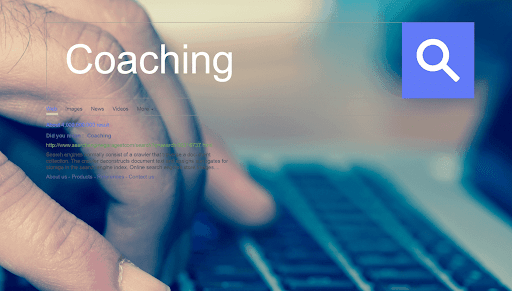Life coaching is a transformative process that aims to enhance personal and professional growth. You, as a certified life coach, play a crucial role in guiding individuals to achieve their goals; providing support and fostering self-awareness.
The process also involves guidance, support, and accountability from you in helping your clients identify objectives, overcome obstacles, and make positive changes. The impact you create as a certified life coach is profound, as you can inspire confidence, motivation, and a sense of purpose, leading clients towards fulfilling and balanced lives.
The certification process ensures you are equipped with the necessary skills and ethical standards to effectively assist your clients. It typically involves completing a training program accredited by a recognized coaching organization, gaining practical experience, and passing an assessment.
There are a number of accrediting bodies that ensure that life coaches are equipped with the necessary skills and knowledge to effectively assist their clients in navigating life’s challenges and opportunities.
By becoming a certified life coach, you can make a significant impact on the lives of others, helping them navigate challenges and realize their full potential.
Follow These 6 Steps to Become a Certified Life Coach
Step 1: Understand the Life Coaching Industry
You must start by researching the field to grasp its scope and potential. Familiarize yourself with different types of life coaches, such as career, wellness, or relationship coaches, each catering to specific client needs.
Understanding these needs is crucial, as it helps tailor your approach and services. This base-level knowledge ensures you can effectively guide clients towards their goals, making this first step essential in your journey to becoming a successful life coach.
Here are some additional points to consider when understanding the life coaching industry:
- Market Trends: Stay informed about the latest trends and demands in the life coaching market to identify potential niches or areas of growth
- Certification Bodies: Research reputable certification bodies and their requirements to ensure you meet industry standards and gain credibility
- Networking: Engage with experienced life coaches and join professional coaching organizations to gain insights and build connections in the industry
- Continuing Education: Consider ongoing learning opportunities to enhance your skills and stay updated with coaching methodologies
- Ethics and Standards: Familiarize yourself with the ethical guidelines and professional standards set by coaching associations to maintain integrity in your practice
- Business Skills: Understand the business aspects of life coaching, including marketing, client acquisition, and financial management, to successfully establish and run your coaching practice
Step 2: Choose Your Niche
Specializing in a niche allows you to focus on a specific area that you may have prior experience or expertise in, making your services more targeted and effective. Specializing in a niche also allows for a stronger connection with your target client group.
Popular niches include health and wellness, career transition, and relationship coaching. To find your niche, assess your skills and passions.
Consider what topics you’re knowledgeable about and what you’re passionate about helping others with. By aligning your niche with your strengths and interests, you can create a more fulfilling and successful coaching practice.
Step 3: Get the Required Training
Step 3 in becoming a life coach is to get the required training. Various life coaching certifications are available, each catering to different niches and coaching styles. To choose the right training program, consider your niche, learning preferences, and the program’s reputation.
Additionally, evaluate the program’s teaching methods, duration, and flexibility to match your learning style. Researching the program’s value, including testimonials from past students and its standing in the coaching community, is also crucial to ensure you invest in a reputable and effective training program.
Opt for accredited programs recognized by reputable organizations like the International Coach Federation (ICF), as they ensure high standards of education and ethical practice. Accredited training is crucial for credibility and effectiveness in your coaching career.
Step 4: Gain Practical Experience
Strategies for gaining practical coaching experience include volunteering as a coach for non-profit organizations, offering discounted sessions to early clients, and participating in coaching mentorship programs where you can practice under the guidance of experienced coaches.
The role of pro bono work in building experience is significant, as it allows you to apply your coaching skills in real-life situations, build your portfolio, and gain testimonials from clients who can vouch for your effectiveness.
For feedback collection and improvement, you can use surveys or direct conversations with clients to gather insights on your coaching style and impact. Use this feedback to identify areas for growth, such as communication skills or specific coaching techniques, and actively work on enhancing these aspects of your coaching practice.
Step 5: Complete Certification Requirements
Understanding the prerequisites is crucial to complete certification requirements; for example, the International Coach Federation (ICF) requires specific training hours and coaching experience.
Completing the required hours of coaching practice often involves logging a specific number of coaching hours, for instance, 100 hours of coaching experience for an entry-level certification.
Finally, passing the certification exam, which assesses your coaching knowledge and skills, is the last step. For instance, the ICF’s Coach Knowledge Assessment (CKA) tests your understanding of core competencies and ethical guidelines.
Step 6: Choose a Credentialing Body
Key organizations include the International Coach Federation (ICF), the Center for Credentialing & Education (CCE), and the European Mentoring and Coaching Council (EMCC). Each offers different credentials, such as ICF’s Associate Certified Coach (ACC) or CCE’s Board Certified Coach (BCC), with varying benefits like global recognition or specialized focus.
When comparing the benefits of different credentials for life coaches, you should consider factors like recognition, specialization, and professional development. For instance, the International Coach Federation (ICF) is globally recognized and offers credentials that are widely respected in the coaching industry.
On the other hand, the Center for Credentialing & Education (CCE) offers the Board Certified Coach (BCC) credential, which may be more appealing to those with a background in counseling or education. Evaluate how each credential aligns with your career goals and the specific niche you aim to serve.
The application process typically involves submitting proof of training, coaching experience, and passing a competency exam, ensuring you meet the standards of the chosen credentialing body. This process usually starts with submitting documentation of your completed training, which should be from a program accredited or recognized by the credentialing body.
Next, you’ll need to provide evidence of your coaching experience, often in the form of logged coaching hours with clients.
Finally, you’ll be required to pass a competency exam, which assesses your understanding and application of coaching principles, ethics, and techniques. Successfully completing these steps demonstrates your commitment to professionalism in coaching and your adherence to the standards of the credentialing body.
Read: Why Simply.Coach is the Best Life Coaching Platform for Your Business
Start Your Life Coaching Business
Begin by creating a business plan that outlines your services, target market, pricing, and financial goals. For marketing, utilize social media, networking, and content creation to attract clients.
To successfully launch your life coaching business, follow these essential steps:
- Develop a Business Plan: Outline your services, target market, pricing, and financial goals to guide your business.
- Build Your Brand: Create a professional identity with a logo, color scheme, and consistent communication tone.
- Set Up a Professional Website: Ensure your website is user-friendly and showcases your expertise, services, and client testimonials.
- Use Social Media: Use platforms like Facebook, Instagram, and LinkedIn to reach a broader audience and engage with followers.
- Network and Collaborate: Build relationships through networking events and collaborations with other professionals in your field to gain referrals and growth opportunities
Starting your life coaching business requires dedication, strategic planning, and continuous effort. By following these steps and staying committed to your personal and professional development, you can build a successful coaching practice that makes a positive impact on the lives of your clients.
Additionally, you can invest in continuing education and professional development through workshops, webinars, and coaching conferences to keep your skills sharp and stay updated on industry trends.
Conclusion
In conclusion, becoming a certified life coach involves several key steps: understanding the industry, choosing a niche, obtaining the required training, gaining practical experience, completing certification requirements, and selecting a credentialing body.
Remember, the journey of a life coach is ongoing, requiring continuous learning, self-reflection, and adaptation to meet the evolving needs of clients. As you embark on this certification journey, stay committed to your personal and professional growth. Embrace the challenges and opportunities ahead with confidence and enthusiasm, knowing that you are on a path to making a meaningful impact in the lives of others.
Simply.Coach is a life coaching software that allows you to streamline your entire client journey online, so you can schedule sessions, take notes, track goals & manage client progress, capture actions & reflections, create a digital resource library of coaching tools & content, and so much more – all from a single place. This coaching software will provide the tools, technology and the setup you need to help your business grow!
Read More:
7 Best Online Billing Software & Tools for Executive Coaches
The comprehensive client onboarding form template for relationship coaches
Building an Effective Coaching Website: Best Practices and Essentials
Creating On-Brand Coaching Experiences with a Coaching Management System
Effective Marketing Strategies for ADHD Coaches: Reaching and Empowering Individuals with ADHD
About Simply.Coach
Simply.Coach is an enterprise-grade coaching software designed to be used by individual coaches and coaching businesses. Trusted by ICF-accredited and EMCC-credentialed coaches worldwide, Simply.Coach is on a mission to elevate the experience and process of coaching with technology-led tools and solutions.









